Are you considering using window wells in your basement? Basement windows are one of the most overlooked elements during renovations, but they can make a significant difference in transforming your unused, dreary basement into a functional, safer, and more inviting living space. In this blog post, we’ll explore the purpose of window wells, their various types, how deep they should be, and more.
Overview – What Are Basement Window Wells?
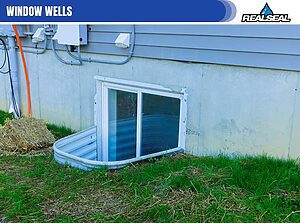
Basement window wells are openings in the foundation of a building that allow natural light to enter into the basement area. They are typically installed around the perimeter of basement windows, which are often situated at ground level or below grade. These window wells prevent soil, water, and debris from entering the basement area while also allowing a safe means of exit in case of an emergency.
Window wells can be constructed of materials such as concrete, stone, metal, or plastic. They also come in various shapes, sizes, and designs. Some window wells are designed to be aesthetically pleasing and can be decorated with plants or rocks to create a more natural look.
In addition to their aesthetic appeal, basement window wells can provide benefits such as increased natural light. Natural light is beneficial, as it can help lower energy costs by reducing the need for artificial lighting.
However, it is important to note that window wells can also pose risks if they are improperly installed or maintained. If they are not covered or secured correctly, they can become a safety hazard–especially for children or pets who may accidentally fall in. Moreover, if they are not properly drained, they can become a source of water intrusion, leading to basement flooding or damage.
Do My Basement Windows Need Window Wells?
The answer is “probably.” If your basement windows are below grade, then window wells are often required for fire code compliance and safety.
What’s the Purpose of Window Wells?
Emergency Exit
When it comes to safety features, the importance of window wells cannot be overstated. They allow for easy escape in case of a fire or other disasters. They can also be outfitted with ladders or other emergency escape aids to make exiting the basement as quick and simple as possible.
They Keep the Basement Dry
Window wells can also prevent water from entering the basement, which is especially important in areas that are prone to flooding or heavy rainfall. Waterproofing basement windows isn’t enough to ensure your basement stays dry.
They Allow Natural Light to Enter
The use of window wells in basement design is an excellent way to bring natural light and a sense of space into what can often be a dark and cramped living area. With natural light streaming through the windows, basement rooms can become more inviting, comfortable, and functional while at the same time ensuring the space is safe and secure.
Aesthetic Appeal
In addition to their practical benefits, window wells can add a touch of aesthetic appeal to a home’s exterior. They are available in various materials, colors, and styles to complement the look and feel of any house.
Materials Used for Basement Window Wells
There are several options when constructing basement window wells, including concrete, fiberglass, plastic, and steel. Each material has unique elements to consider before deciding.
Concrete
Concrete window wells are a popular choice thanks to their durability and strength. Concrete is known for its ability to withstand the test of time, making it a reliable option for areas with harsh weather conditions. Additionally, concrete window wells require little maintenance and can often be customized to match the home’s aesthetic. However, the downside to concrete window wells is that they can be very heavy and difficult to install.
Fiberglass
Fiberglass window wells are an excellent option for those looking for a lightweight and affordable alternative to concrete. Unlike concrete, fiberglass is very easy to install and can be molded to fit the exact dimensions of the window well. Additionally, fiberglass is resistant to rust and corrosion, making it an ideal option for homes in areas with high levels of humidity. However, fiberglass window wells are not as durable as those made from concrete or steel and may fade or crack over time.
Plastic
Plastic window wells are another popular option because of their affordability and versatility. Plastic is easy to install and can be purchased in various colors and textures to match the exterior of your home. Additionally, plastic window wells are very lightweight and resistant to rust and corrosion. However, plastic is not as strong as concrete or steel and can be easily damaged by heavy objects.
Steel
Steel window wells are the most durable option, known for their ability to withstand extreme weather conditions. Steel is also resistant to rust and corrosion, making it an excellent choice for homes in areas with high moisture levels. Unlike concrete, steel window wells are relatively easy to install and can be customized to match the aesthetic of your home.
How Deep Should a Window Well Be?
Regarding basement window wells, proper depth is essential for ensuring safety and functionality. The recommended minimum depth for a window well varies, depending on the window’s location. One consideration is to provide ample space for them to open without obstruction. The depth should also allow for someone to climb out of the window well in an emergency, providing a vital escape route.
Furthermore, a properly installed drainage system is necessary to prevent water accumulation and flooding, which can cause damage to the basement and the window frame. Window wells with inadequate drainage can also attract insects and other pests, creating additional problems. Deeper window wells also allow for the installation of more efficient drainage systems, such as perforated drainage pipes or gravel-filled reservoirs, which provide effective water removal.
Is a Window Well Safety Grate Necessary?
Although window wells significantly contribute to the utility of buildings, they also pose a potentially dangerous safety hazard. Without proper precautions, people, animals, and objects may accidentally fall into them, leading to significant injuries, property damage, and even deaths. This is where having a window well safety grate comes in.
A window well safety grate is a type of cover placed over the window well to secure it and prevent accidental falls. These grates are typically made of strong materials such as steel or aluminum, and come in various sizes and styles to fit different types of window wells. The grates are designed to provide a durable barrier between the open window well and the surrounding area, making it impossible for people, pets, or objects to fall in.
Do I Need a Cover for My Window Well?
Yes, you should strongly consider covering your window wells. This is because window wells can be dangerous if left exposed. Without covers or safety grates, they can become a hazard to children and pets who might accidentally fall into them. They can also become a pitfall for leaves, debris, and even small animals that may get trapped inside and create a blockage.
Covers also provide various benefits apart from ensuring safety and security. They can prevent water and snow from accumulating in the window wells, causing water damage and leak issues in your basement. They can also improve the insulation of your basement and help keep it cooler in the summer and warmer in the winter, reducing your energy bills. By installing covers, you can maintain the cleanliness of your window well, preserve its functionality for longer, and help prevent your basement from flooding.
When choosing covers, there are different types to consider. Some covers are designed to be removable, while others are permanently attached. Covers made of strong, durable materials like metal or polycarbonate are typically the best choice for maximum protection and longevity. It is essential to ensure that the covers you select fit your window wells correctly in order to prevent gaps or spaces that may allow debris or creatures to enter. Proper installation is critical, and it is recommended that you consult a professional to help you with the process.
What Are Window Well Drains?
Window well drains are a drainage system designed to prevent water buildup in window wells. The primary purpose of window well drains is to prevent water from seeping into the basement or causing damage to the foundation. They work by channeling water away from the area around the window well and directing it towards a designated drainage system.
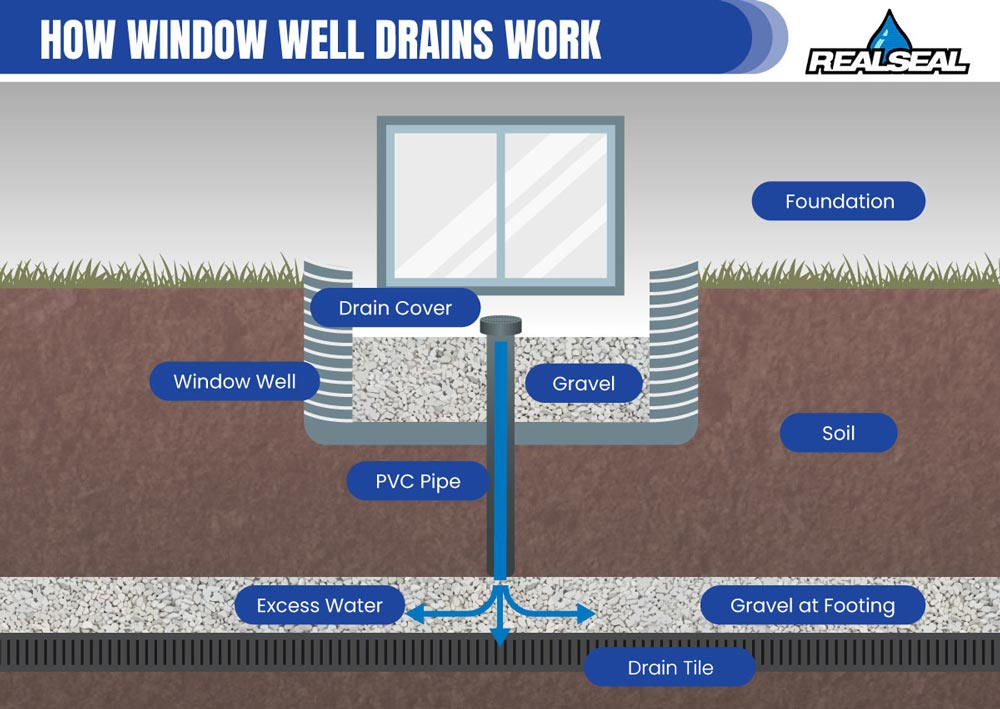
While window well drains are not necessarily a requirement for all homes, they are highly recommended for areas with high precipitation levels, or where the soil has poor drainage capabilities. Water accumulating in a window well can cause many issues–including leaks, mold growth, and flooding. In addition, standing water can attract pests like mosquitoes and rodents, creating an unsanitary environment.
A properly installed window well drain system can prevent all these problems and provide some much-needed protection to your home’s foundation. The most common types of window well drains are gravity drains (which use a downward slope to direct water away from the basement) and sump pumps (which remove water from the window well via a powered pump).
Overall, window well drains are a wise investment for homeowners who want to protect their homes from water damage. They may be costly to install, but their long-term benefits outweigh their upfront expense. If you live in an area that is prone to heavy rain or have experienced issues with window well flooding, it’s worth considering installing a drain system to safeguard your home.
Common Problems with Window Wells
It is important to note that window wells can be prone to a number of issues, and homeowners should remain mindful of them if they want to guarantee the safety and longevity of their property. These common problems include the following:
Poor Drainage
One of the most common problems experienced with window wells is poor drainage. When water is allowed to accumulate in the well, it can seep into the basement or foundations of the home and cause significant damage. This is particularly problematic in areas with heavy or prolonged rainfall, where standing water can linger for weeks.
Clogging
Clogging is another major issue that can result from neglecting maintenance of the window wells. Leaves, dirt, and other debris can collect in the well and block the drainage system. This can cause water to overflow and damage the home’s foundation, leading to expensive repair costs. Furthermore, clogged window wells can become a nesting ground for unwanted pests like rodents, insects, and spiders, who will feel right at home in the damp environment.
Poor Installation
If the window well is installed improperly, gaps and leaks may lead to water seepage. Additionally, if the well is too shallow or lacks drainage, water can channel toward the home’s foundation, ultimately leading to structural damage over time. It is therefore crucial for homeowners to ensure that a professional carries out the window well installation, so that they can avoid any potential DIY mishaps.
If you’re considering installing window wells in your Chicagoland home, contact The Real Seal today for a free consultation and estimate.
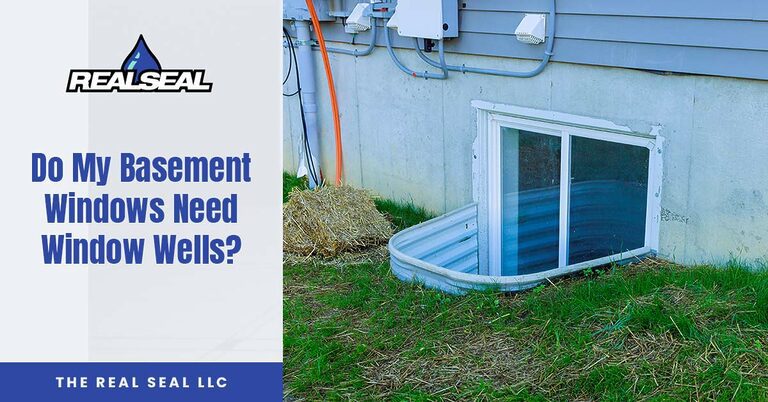
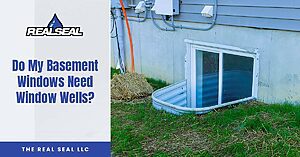
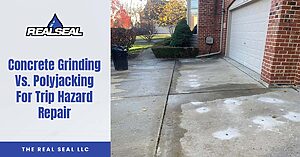
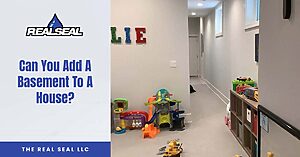
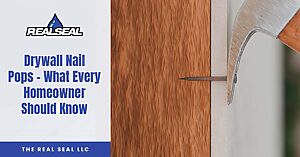
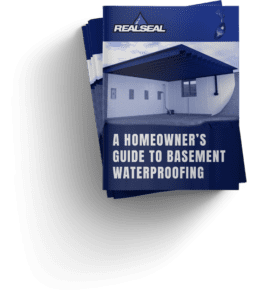

16 Responses
Good morning, your article is very helpful with plenty of understanding. However my problem is burglars are using the windows wells as a way of breaking into my home .
I’ve been looking for metal grated covers to secure the 3 windows covers . Could you please help me ?
Hi Kenneth!
Standard Metal grate covers are great, but leave little ways of securing to the window well. However, there are some emerging window well metal grate covers that can be secured, but you won’t find them at a big box store. Those will be found by a local company that installs them. There are plenty of companies that can install locking window well covers that have metal supports and help to keep your home more secure. If you’re in the Chicagoland area, give us a call! If not, find a local, reputable, waterproofing contractor nearby and they can help you out.
Great post! I never realized how important window wells are for basement windows. I always thought they were just for aesthetics. I’ll definitely be checking mine to ensure they’re up to code and functional. Thanks for the info!
Happy to help!
Great post! I never considered the importance of window wells for basement windows before. It definitely makes sense to ensure proper drainage and safety. I think I might need to check mine!
Happy to help!
Great insights in this post! I had no idea how crucial window wells could be for basement safety and drainage. Definitely looking into this for my home renovation project. Thanks for sharing!
You bet, glad you got something out of it!
Great post! I never considered the importance of window wells for my basement windows before reading this. The way you explained the benefits and potential issues really opened my eyes. I’ll definitely be looking into this!
Thank you, glad you liked it!
Great post! I never really thought about the importance of window wells for basement windows. It makes so much sense for drainage and preventing moisture issues. I’ll definitely be looking into this for my own home. Thanks for the info!
Happy to help!
Great information! I never realized how important window wells are for basement windows. It’s definitely something I need to consider for my own home. Thanks for sharing!
You’re welcome!
Great post! I never really thought about the importance of window wells for basement windows until now. It makes so much sense that they can help with drainage and prevent water damage. I’ll definitely look into adding them to my basement windows!
Always a good idea!